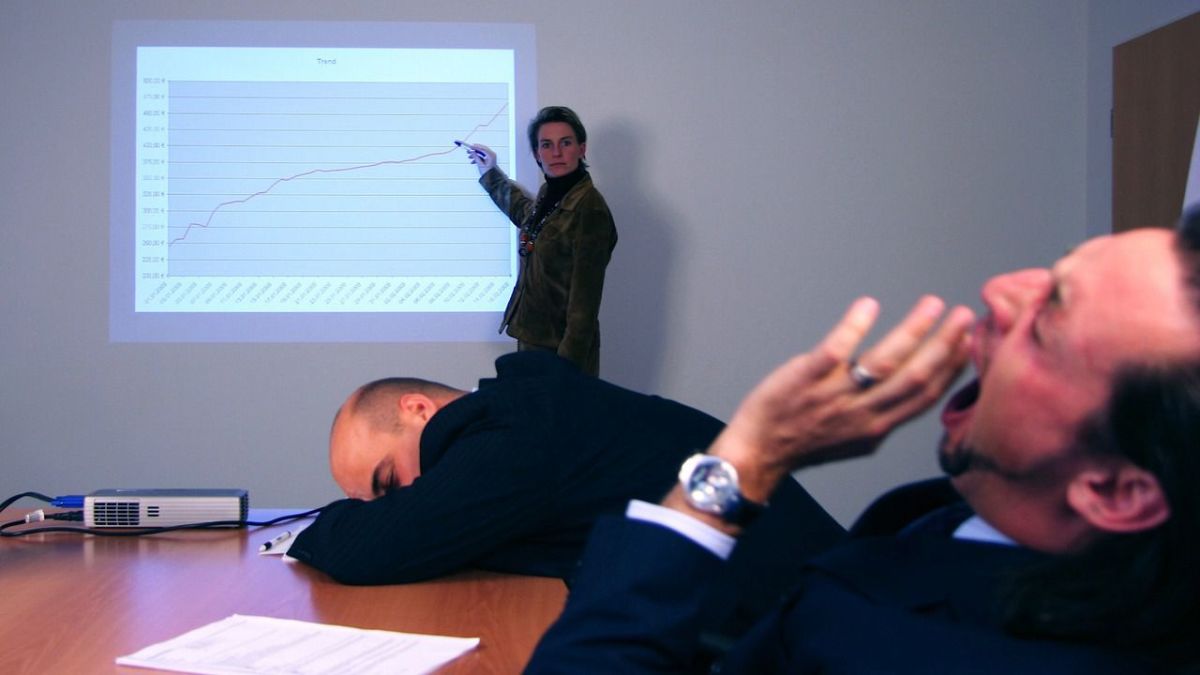Our brains try to make boring speeches more interesting if someone is speaking monotonously we ll subconsciously make it more vivid in our heads

Our Brains Transform Boring Speeches into Engaging Narratives

Have you ever found yourself sitting through a monotonous speech, struggling to pay attention while the speaker’s words seem to fall flat? It turns out, our brains are working hard behind the scenes to make these dull moments more interesting. Research has shown that when someone speaks in a monotone or uninspiring manner, our brains subconsciously step in to spice up the experience.
A study published in the Journal of Cognitive Neuroscience explored how our brains react to different speaking styles and tones. Researchers found that when the speaker’s delivery lacked variation, our brains compensated by recreating the narrative with added vividness and engagement. This phenomenon highlights the incredible adaptability and creativity of the human mind.

Understanding the mechanisms at play can help us appreciate the intricacies of our brain’s processing. Our brains are constantly seeking stimulation and excitement, making them highly adept at transforming mundane situations into engaging narratives. This cognitive response is beneficial in delivering a seamless experience of perception and understanding, turning unstimulating speeches into captivating stories in our heads.
The brain’s ability to fill in the gaps during uninteresting speeches arises from its inherent desire to make meaning and find patterns. It operates on the principle of prediction, actively trying to anticipate the speaker’s direction and intent. When met with a monotonous presentation, our brain looks for patterns in the tone, rhythm, and language, generating a mental model that aligns with our expectations. This mental model not only aids comprehension but also adds elements of interest and excitement that might be lacking in the actual speech.
The phenomenon described is supported by neural studies of attention and perception. For example, fMRI and EEG studies have revealed that areas responsible for imagination and creativity, such as the frontal and parietal lobes, show increased activity when participants engage in tasks requiring the construction of mental narratives. Therefore, during a monotonous speech, these brain regions are likely to be recruited, enhancing our mental engagement by turning the dull delivery into a more stimulating experience.
Interestingly, this brain adaptation process suggests that our minds are active participants in our perception of reality. We don’t passively receive information but actively construct our understanding of the world around us. This realization opens up exciting possibilities for improving communication and engagement in various fields, such as education, public speaking, and even entertainment.
In conclusion, the next time you find yourself trapped in a boring speech, remember that your brain is not giving up. Instead, it is working its magic, transforming the mundane into the extraordinary. Our brains instinctively seek engagement and excitement, and when faced with a monotonous presentation, they take matters into their own hands, creating vibrant narratives in our minds. So, the next time you feel your attention waning, give your brain some credit for its creative ability to make even the most uninspiring speeches come alive.
Share
Related Posts
Quick Links
Legal Stuff

